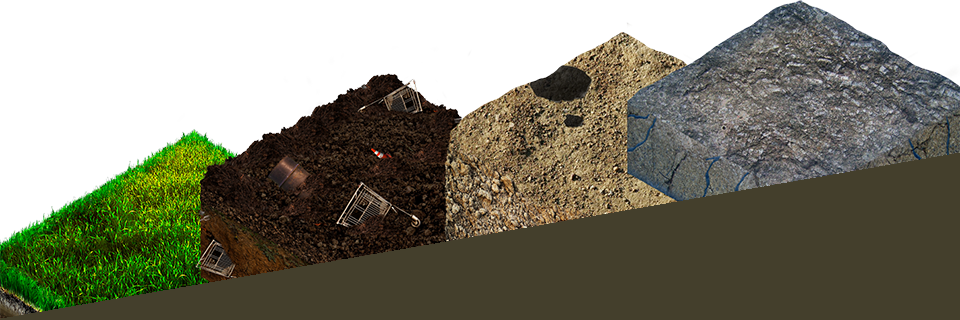Yellow Sub Geo were contacted by the developer of a residential development on greenfield land in North Devon. Despite being a project on former agricultural land, previous investigation and assessment of ground conditions had left an unresolved issue associated with arsenic concentrations in soil.
South-west England has naturally elevated concentrations of arsenic in soil, originating from the large granite masses beneath Exmoor, Dartmoor and Bodmin Moor. The incumbent consultant had built an unnecessary status for supplementary assessment of a natural soil on a greenfield site. Against this backdrop, the development was being held up by a need to discharge a contaminated-land related pre-commencement planning condition, which had become a critical-path issue for the project programme.
North Devon Council and its Environmental Health team are well aware of the indigenous naturally occurring arsenic in soils across the region and are therefore typically pragmatic in their management of related issues. Pragmatic though the Local Authority may be, it is difficult for the technical and planning officers at the Council to ignore a formal recommendation for additional testing and assessment (and potential remedial) activities once in the technical report is in public domain.
Given the site was greenfield and the arsenic in soil demonstrably of natural in origin, and the recommended specialist laboratory testing would take time and incur cost, the developer sought an alternative view.
Drawing upon experience working in the region, and a firm grasp of the technical fundamentals, Yellow Sub Geo enabled successful navigation of the impasse within two weeks of instruction. The outputs included an incisive technical narrative designed to enable North Devon Council to re-set previous assertions by others that there was a human health risk from natural soils. The work was robust and data-supported and undertaken with a very rapid turnaround to enable progression of the project in line with the programme.
This case study serves to illustrate the importance of setting the right expectations with the regulators and carefully managing the entry of information into the public domain in support of planning. Under-investment in the right answers at the start of the process often leads to more costly and time consuming delays down the track. That said, this particular issue of natual arsenic in soil could (indeed should) have been put to bed in the first report (produced by others) and interaction with the regulators.
#yellowsubgeo







